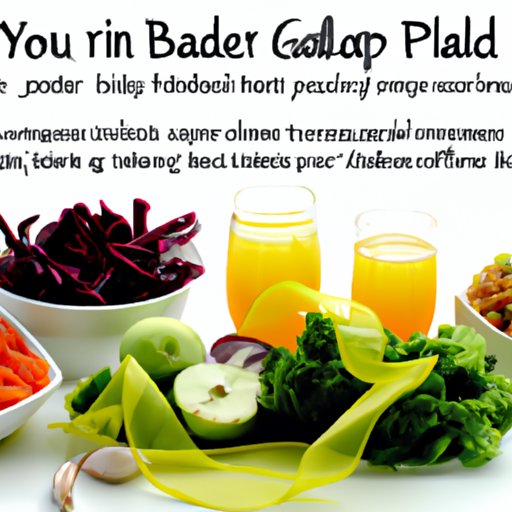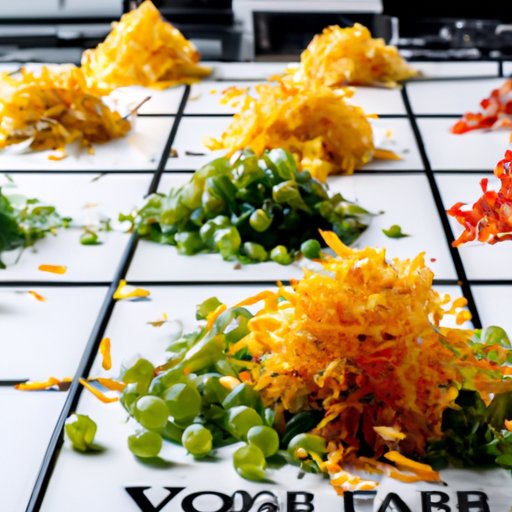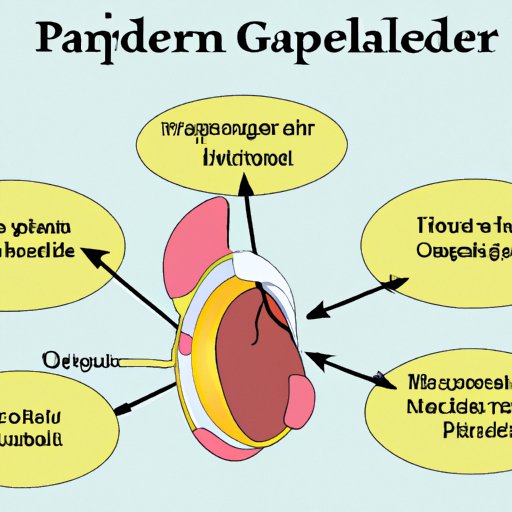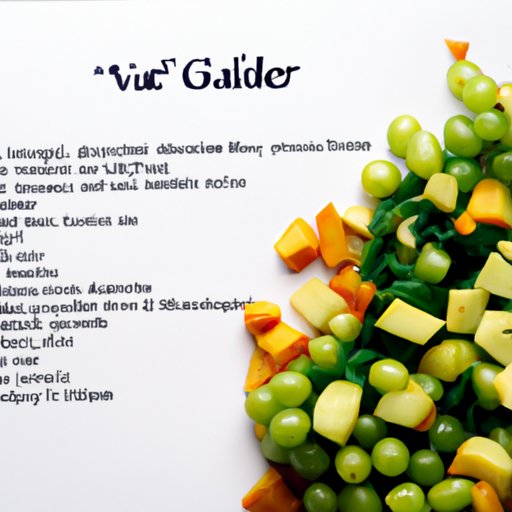Introduction
Gallbladder surgery is a common procedure. The American College of Gastroenterology estimates that more than 800,000 people in the United States have their gallbladders removed each year. After having this surgery, it’s important to pay attention to your diet and make sure you’re eating the right foods to ensure a speedy recovery. In this article, we’ll explore some tips for eating healthy after gallbladder surgery, as well as which foods to avoid and the role of protein in healing.
Overview of Gallbladder Surgery
The gallbladder is a small organ located under the liver. It stores bile, which helps with digestion, and releases it when needed. When the gallbladder becomes inflamed or infected, it can cause pain and other digestive issues. This condition is known as cholecystitis. If medications and other treatments don’t work, gallbladder removal surgery may be recommended. This is usually done laparoscopically, meaning several small incisions are made instead of one large one.
Benefits of Low-Fat Diets After Gallbladder Surgery
After having their gallbladder removed, many people experience digestive issues such as diarrhea, gas, and bloating. Research suggests that following a low-fat diet can help reduce these symptoms. A study published in the journal Digestive Diseases and Sciences found that patients who followed a fat-restricted diet had fewer symptoms and improved quality of life compared to those who did not.

Tips for Eating Healthy After Gallbladder Surgery
Eating the right foods after gallbladder surgery is essential for a successful recovery. Here are some tips for eating healthy:
Eating Smaller Meals More Frequently
Eating smaller meals more frequently can help reduce symptoms like bloating and abdominal discomfort. It’s also easier for your body to digest smaller amounts of food. Try to eat five to six small meals per day instead of three large ones.
Avoiding Fried and Greasy Foods
Fried and greasy foods are difficult for the body to digest and can lead to discomfort after gallbladder surgery. Avoid fried foods such as French fries, chips, and doughnuts, as well as greasy items like bacon, sausage, and pepperoni.
Drinking Lots of Water
Staying hydrated is important for overall health, but it’s especially important after gallbladder surgery. Water helps keep your digestive system functioning properly and can help reduce symptoms like bloating and constipation. Aim to drink at least eight 8-ounce glasses of water per day.

Foods to Avoid After Gallbladder Surgery
In addition to avoiding fried and greasy foods, there are certain other foods that should be avoided after gallbladder surgery. These include:
High-Fat Dairy Products
High-fat dairy products such as whole milk, ice cream, and cheese can be difficult to digest and may cause discomfort. Try to stick to low-fat dairy products such as skim milk, yogurt, and cottage cheese.
Processed Meats
Processed meats such as lunch meat, hot dogs, and sausage contain unhealthy fats and preservatives. They can be hard to digest and can cause digestive upset after gallbladder surgery. Opt for leaner proteins such as chicken, turkey, fish, beans, and tofu.
Fatty Fish
Fish such as salmon, mackerel, and tuna are high in healthy omega-3 fatty acids, but they can also be difficult to digest after gallbladder surgery. Choose leaner fish such as cod, tilapia, and flounder instead.

The Role of Protein in Healing After Gallbladder Surgery
Protein is essential for healing after gallbladder surgery. Protein helps repair tissues and build new cells, which is important for the healing process. Here are some tips for getting enough protein:
Sources of Lean Protein
Lean proteins such as chicken, turkey, eggs, beans, and tofu are good sources of protein and easy to digest. Eggs are especially beneficial because they’re packed with vitamins and minerals, including iron, zinc, and B vitamins.
Importance of Eating Enough Protein
It’s important to get enough protein each day to help with healing. The Institute of Medicine recommends that adults consume 0.8 grams of protein per kilogram of body weight per day. For example, if you weigh 125 pounds (57 kilograms), you should aim to get 46 grams of protein per day.
Creating a Meal Plan for Recovery After Gallbladder Surgery
Creating a meal plan for recovery after gallbladder surgery can help ensure you’re getting all the nutrients you need. Here are some tips for creating a balanced meal plan:
Making Balanced Meals
When creating a meal plan, try to make sure each meal includes a lean protein, complex carbohydrate, and healthy fat. Examples of lean proteins include chicken, turkey, eggs, beans, and tofu. Complex carbohydrates include whole grains, fruits, and vegetables. Healthy fats include nuts, seeds, and olive oil.
Examples of Nutritious Meal Plans
Here are some examples of nutritious meal plans for recovery after gallbladder surgery:
- Breakfast: Oatmeal with almonds and banana
- Lunch: Salad with grilled chicken, quinoa, and avocado
- Snack: Greek yogurt with berries
- Dinner: Baked salmon with roasted vegetables and brown rice
Conclusion
Eating a healthy, balanced diet after gallbladder surgery is essential for a successful recovery. Avoiding high-fat, fried, and processed foods can help reduce symptoms such as bloating and abdominal discomfort. Make sure to include lean proteins, complex carbohydrates, and healthy fats in your meals, and don’t forget to drink plenty of water. By following these tips and creating a nutritious meal plan, you can speed up your recovery and get back to feeling your best.
For more information, visit the National Institutes of Health website at https://www.niddk.nih.gov/health-information/digestive-diseases/gallbladder-removal-cholecystectomy.
(Note: Is this article not meeting your expectations? Do you have knowledge or insights to share? Unlock new opportunities and expand your reach by joining our authors team. Click Registration to join us and share your expertise with our readers.)
